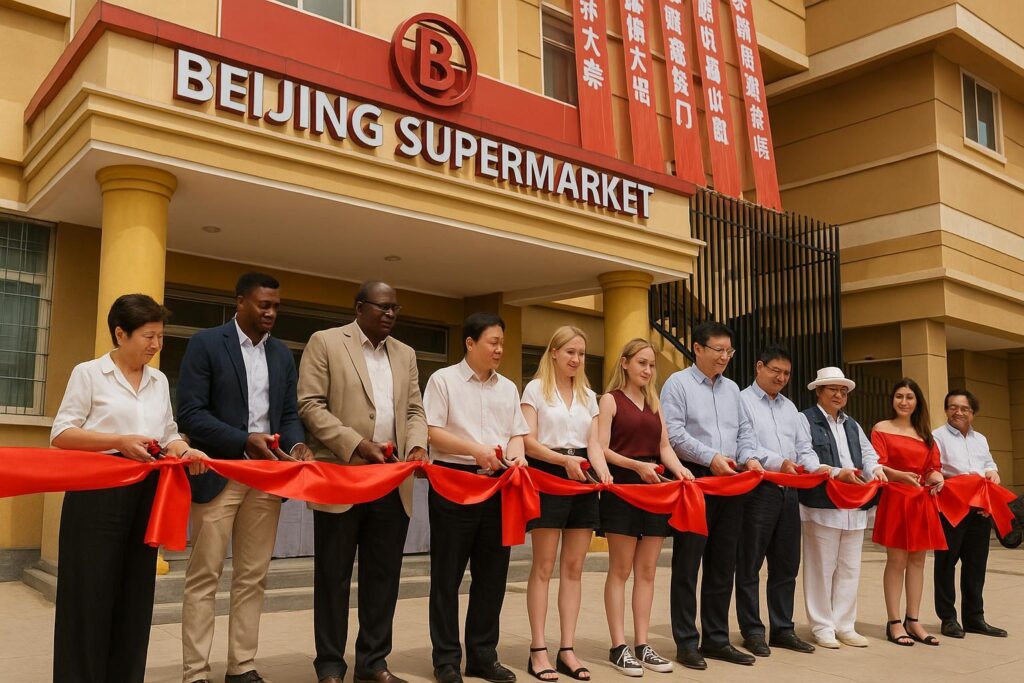Fresh Investment Signals Retail Confidence
In the bustling Tong Ping district of Juba, the neon sign of Beijing Supermarket flickered to life last Friday, marking the entry of a new Chinese-South Sudanese retail partnership that promises fresh jobs, deeper supply chains and a rare channel for future exports.
Company research suggested Juba offers a near-untapped consumer base compared with Nairobi or Kampala, where Chinese business communities number in the hundreds of thousands, Managing Director Simon He noted, adding that only about 500 Chinese private actors currently operate in South Sudan.
Local Workforce at Centre Stage
Eighty percent of the supermarket’s staff are South Sudanese: cleaners, cashiers, guards and customer-care agents, according to manager Philip Deng Mabior, who argued that youthful talent too often sits idle despite skills acquired through vocational centers and diaspora returnees.
He believes the retail floor will become a training ground, with strong English-Arabic service culture that could ripple into other sectors as the economy diversifies.
Farmers See New Market Opening
Management has signalled a purchasing policy that favours domestic tomatoes, eggs and onions over imports, urging growers to formalise small plots into registered enterprises and supply the shelves daily, thereby keeping logistics costs down and produce freshness up.
Local agronomist Mary Boya says guaranteed off-take could trigger an uptick in greenhouse investment along the Nile corridor, where water and fertile soils are abundant yet market access remains patchy.
Chinese Entrepreneurs Eye Export Potential
Simon He envisions containers that arrive full and depart equally loaded, carrying South Sudanese gum arabic, sesame or leather to Asian ports, a shift he says would narrow the country’s trade gap and strengthen regional transport corridors.
Analysts caution that export ambitions hinge on stable customs processes and improved roads toward Mombasa, yet note that Chinese-financed infrastructure has already extended key highways by more than 400 kilometres over the past five years.
Government Welcomes Economic Catalyst
Trade and Industry Minister Atong Kuol Manyang praised Beijing Supermarket as a symbol of ‘productive friendship’ that aligns with Juba’s plan to cut unemployment below 20 percent by 2025, while thanking Beijing for past support in oil, health and scholarship programmes.
Economists in Juba suggest the model could inspire similar joint ventures across Central Africa, provided regulatory clarity and political stability persist.


